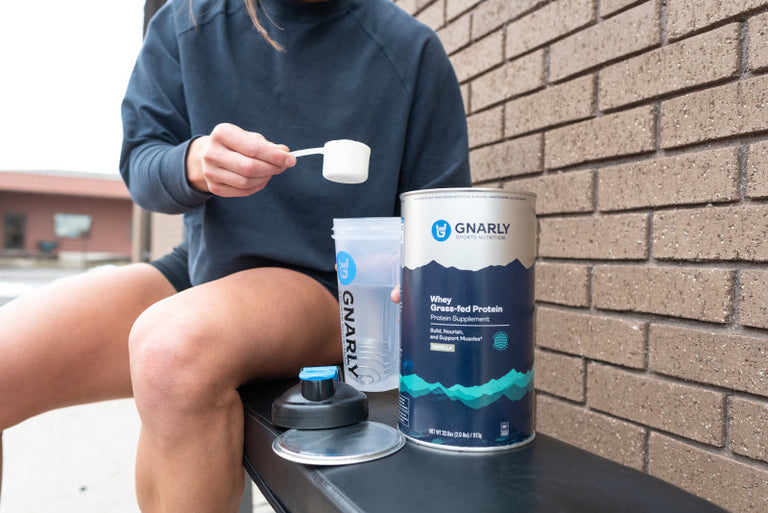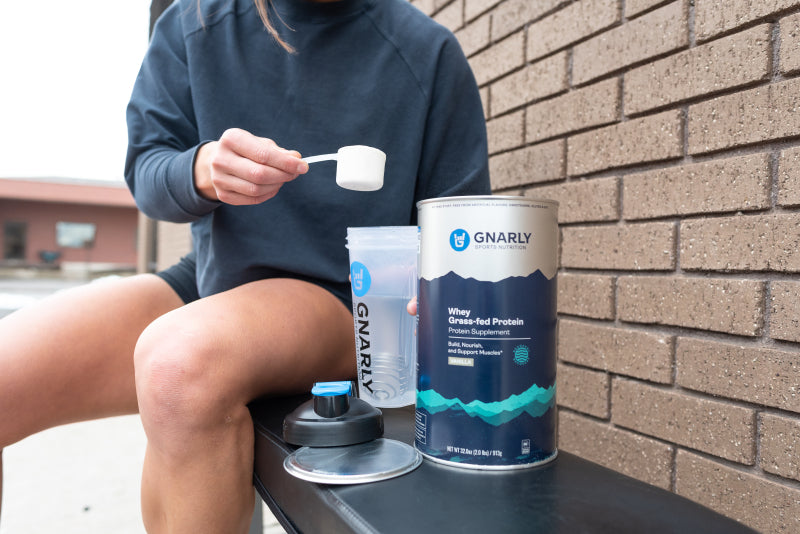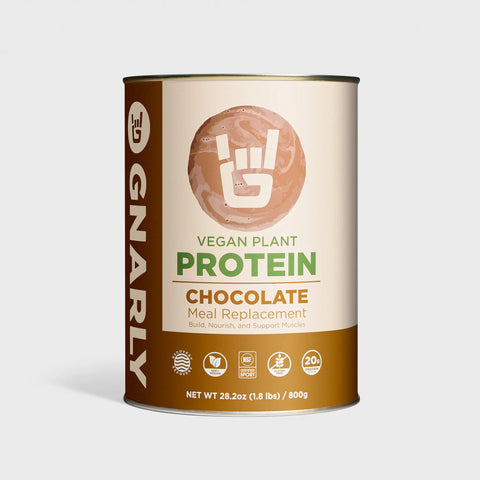Most people find protein to be the most difficult macronutrient to consume in optimal amounts - even in their everyday lives. It can become more difficult when traveling, camping, or otherwise spending time away from home and your kitchen.
However, it’s incredibly important to prioritize protein on your outdoor camping trips because it helps you recover and perform your best. Additionally, protein supports blood sugar balance, which helps you have more stable energy and less fatigue throughout the day.
Does when I eat protein matter?
Once you’ve decided you need to focus on your protein during trips, you may also want to consider when you eat protein. Protein is associated with a greater risk of developing gastrointestinal (GI) symptoms as it is slower to digest and delays gastric emptying [1]. Adding to this problem is the fact that blood flow is redistributed away from the digestive system and toward working muscles during exercise, further contributing to GI symptoms [2].
Therefore, you will likely want to avoid eating high protein foods and immediately jumping on the wall, your bike, the trail, and so on. Other meal components that may contribute to GI symptoms include high fat and high fiber foods, and dehydration may exacerbate the problem [1]. I generally recommend eating large, mixed meals 2-3 hours away from exercise, but your personal tolerance as well as activity of choice is going to impact this recommendation.
Bookend your protein for comfort
With this in mind, you can “bookend” your day with protein if you do not have adequate time to eat a large meal midday. Bookending your day with protein means having a high protein breakfast and dinner to satisfy a large portion of your protein requirements. By doing so, you can focus on carbohydrates when you really need them (during exercise), minimize digestive discomfort, and still take recovery into consideration.
You can then “sprinkle” smaller amounts of protein as snacks throughout the day to meet your protein needs. A protein-rich bedtime snack, such as yogurt or cereal with soy milk, can also help with meeting protein needs. Protein shakes can be used as tolerated, and remember that you can always make one half of a protein shake as part of a snack. Gnarly Vegan stick packs are a great choice for on-the-go protein!
Remember: your fueling strategy is going to be personal and will take some experimenting to understand what feels best.
What foods can I use to increase my protein?
Regardless of dietary preference, there are a variety of ways to get protein during the day.
Shelf-stable protein snacks:
|
20g/serving (2 scoops) |
|
|
Seasoned tuna packs (e.g. Safe Catch) |
24g in 3oz |
|
Dried edamame |
14g in ⅓ cup |
|
Peanut butter packets |
7-8g in one single serving pack (2 tbsp) |
|
Roasted chickpeas |
6g in 1oz |
|
Jerky |
9g in 1oz |
*Both vegan and whey protein are great options, and your choice will come down to what you personally prefer and tolerate best.
Easy protein for camping meals:
|
Chickpea pasta |
11g protein per 2oz |
|
Hard boiled eggs |
6g protein per egg |
|
Canned beans |
16g in 1 cup black beans |
|
Canned salmon |
18g in 3oz |
|
Canned chicken |
16g in 4oz |
|
Cheese (deli slice) |
6g protein per slice |
|
Greek yogurt |
16g in ¾ cup |
|
Cottage cheese |
14g in ½ cup (full fat milk) |
|
Tempeh |
18g in 3oz |
Use meal prep for short trips to make protein intake easy
Just like at home, you can meal prep for shorter trips to make protein consumption more convenient. Of course, you’ll also need a way to keep your meal prep safe from foodborne pathogens, so this is best suited for car camping where you have either an ice chest or portable electric cooler.
You may choose to prepare separate protein components, such as chicken breast (or buy a rotisserie chicken), seasoned black beans, or hard boiled eggs, or you may choose to cook entire meals. Chili is an easy meal that’s high in protein whether you prepare it with animal protein or keep it vegan!
However, for the sake of food poisoning, I don’t typically recommend bringing raw meat on camping trips, and if you do, plan to cook it early in the trip! Remember that food must be stored below 40℉ to prevent the rapid growth of bacteria.
TL;DR
So what are the quick action-item steps you can take to increase your protein intake both at home and on the road?
- Bookend your day with protein by prioritizing protein-rich meals at the beginning and end of each day - this is especially helpful for exercise intensive long days outside.
- Protein-rich snacks throughout the day can boost your protein intake - try foods like jerky, peanut butter, hard boiled eggs, dried edamame, yogurt, or protein shakes.
- Remember that meals high in protein, fat, or fiber too close to exercise can cause GI discomfort, so plan ahead for the best timeline! Also remember that dehydration can further exacerbate these issues.
- When possible, meal prep before camping trips to prioritize protein without the hard work after a long day outside. Pick dishes that are easy to reheat over a fire or campstove, such as chili, stew, or even a chickpea pasta dish.
Resources
- de Oliveira, E. P., Burini, R. C., & Jeukendrup, A. (2014). Gastrointestinal complaints during exercise: prevalence, etiology, and nutritional recommendations. Sports medicine (Auckland, N.Z.), 44 Suppl 1(Suppl 1), S79–S85. https://doi.org/10.1007/s40279-014-0153-2
- de Oliveira, E. P., & Burini, R. C. (2011). Food-dependent, exercise-induced gastrointestinal distress. Journal of the International Society of Sports Nutrition, 8, 12. https://doi.org/10.1186/1550-2783-8-12





